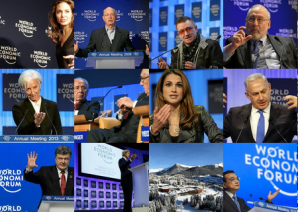Davos: where journalism is PR and change is consumer choice
Markus Giesler reports on the media reception to his eight year ethnographic and institutional study on the World Economic Forum that provides empirical evidence that Davos is not "improving the state of the world."

As a consumer researcher who regularly publishes in top-tier journals and strives for his work to be read by a broader audience, working with journalists is a central aspect of my job. And the vast majority of journalistic encounters I had were critical, balanced, and intellectually stimulating. In fact, as a look at my bio blurb reveals, I've had very good relations with the press.
Despite these positive experiences, I often asked myself if this would still be the case if I studied a topic that was a little more controversial than my other research on, say, the creation of the Botox Cosmetic market or the relationship between Hummer drivers and American Exceptionalism?
Recently, my co-author Ela Veresiu and I investigated the sociological impact of the World Economic Forum in Davos, Switzerland. We conducted an institutional analysis with an ethnographic component that entailed going to Davos to interview forum attendees and investigating the impact of the forum's problem-solving initiatives on larger society and consumption.
Our study, which was published in the Journal of Consumer Research (University of Chicago Press), sheds a problematic light on the forum. For the first time, it provides empirical evidence that Davos is not "improving the state of the world" - as the forum claims. Rather the summit's initiatives have played a significant role in perpetuating the very inequalities and issues it claims to address.
Reframing rather than solving issues
That's because, sociologically speaking, Davos is not solving social issues but reframing them.More specifically, the World Economic Forum is a master in redefining questions about political issues into questions about individual morality.
For example, when one of the forum's most public faces, Al Gore, argues that global warming is "really not a political issue, so much as a moral one" and that we need a passionate commitment from all involved stakeholders to become a society in which "each one of us is a cause of global warming, but each of us can make choices to change that with the things we buy, with the electricity we use, the cars we drive," Gore not only promotes new markets. He also invariably promotes a particular society that renders all demands for environmental protection as evidence for inherent moral pathologies such as entitlement, laziness, passivity, and a lack of solidarity.
As we further demonstrate, this shift occurs through a fourfold moral reform process we call consumer responsibilization.
First, the forum shifts the issue at hand to the level of individual consumption. For example, it claims that global warming is not the result of unregulated markets or excessive corporate activities but rather stems from individual market actors' unethical choice making.
Next, the forum promotes the idea that the best way to solve global warming is to nurture a more ethical consumer behavior via greater market inclusion.
Third, governments are encouraged to enable the creation of new markets to foster this inclusion.
Finally, institutional and individual actors such as companies, managers, and above all, the consumers are encouraged to adopt the new problem-solving ethos.
Shifting the burden from governments to consumers
In conclusion, our study reveals that the World Economic Forum has not solved issues such as poverty, global warming, chronic illness, or debt. It has rather shifted the burden for the solution of these problems from governments and business to four, now commonplace types of responsible consumers subjects: the bottom-of-the-pyramid consumer, the green consumer, the health-conscious consumer, and the financially literate consumer.
So did media outlets embrace our findings with the same enthusiasm that they had embraced my previous work? They did not. Instead our week was filled with amusing journalist responses from "can you spin this to be more positive?" to "I fear for my job if I bring this topic."
Okay, media citations are not a good predictor of scholarship quality. And maybe our findings are not newsworthy. But what about intellectual heavy-weights such as Henry Mintzberg or Susan George whose brilliant Davos-critical pieces have been largely ignored by the media as well?
The thing is this. Virtually every major news brand broadcasts live from Davos. And in many cases, these brands are reporting about themselves. Huffington Post (where I will hopefully still blog about marketing and consumption after this essay), for example, covers the forum while Huffington Post's President and Editor-in-Chief Arianna Huffington holds a discussion about the role of journalism and pop culture in finding solutions to global crises.
Is this modern journalism or a problematic blurring of boundaries? Does it open new avenues for problem solving or does it constrain the limits of acceptable speech?
What is responsible journalism?
Using the common quantitative social science method of automated content analysis, one can compare the media coverage about the World Economic Forum with official World Economic Forum materials and reports. Doing this over a period of ten years reveals an increasing overlap between the two content categories, with this year's media coverage being more heavily skewed in favor of the forum's official narrative than ever before. The notable exceptions to this trend are the New York Times, the Atlantic and a few pieces by Bloomberg BusinessWeek.
These findings raise a number of red flags. Defending institutions, as demonstrated recently by the media solidarity with the French satirical magazine Charlie Hebdo, is one important function of journalism. But the close-knit relationship between the World Economic Forum and many media outlets systematically undermines another, potentially even more important, function of journalism (and social science): questioning institutions.
What does it mean to be a responsible journalist? Perhaps we should return to Susan George's description of the responsible social scientist: "The job of the responsible social scientist is first to uncover these forces [of wealth, power and control], to write about them clearly, without jargon ... and finally ... to take an advocacy position in favour of the disadvantaged, the underdogs, the victims of injustice."
When media outlets no longer question powerful institutions such as the World Economic Forum, what's the difference between a journalist and a PR manager? Journalists have a choice on whether they satisfy their principals' agendas or if they serve the truth. If all they do is echo the official message, readers will have no choice but to look elsewhere for information.
